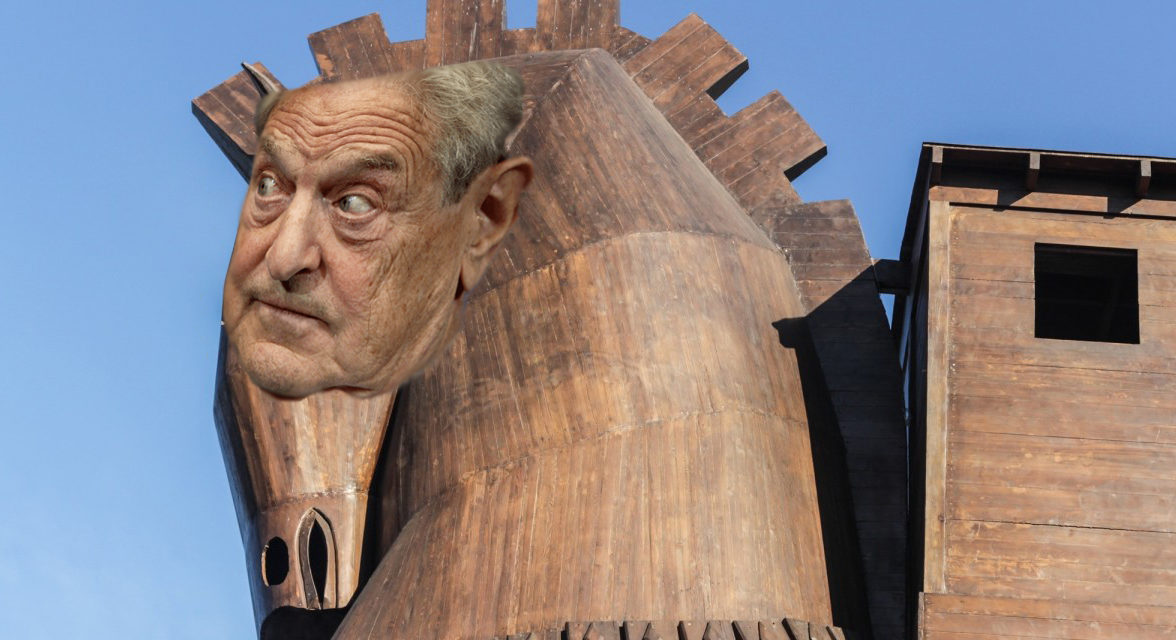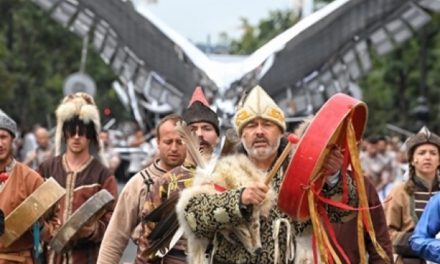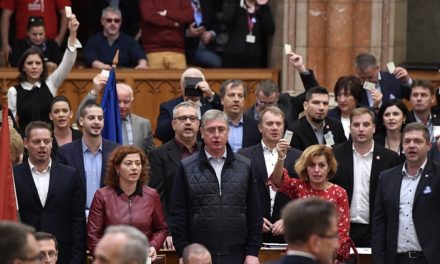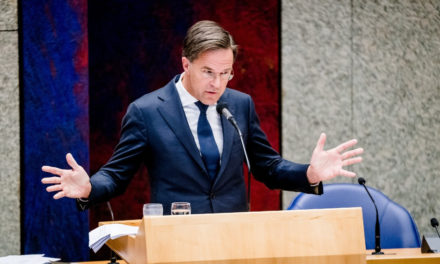The Firewall Group summarized in a fact-finding article why the Russian-Ukrainian war is important to György Soros. The Open Society and its co-foundations have been increasing their influence in Ukraine for decades, and the current war goes against the plans that the liberal think tank intended to implement in our eastern neighbor.
The American democratic elite, including George Soros, have significant interests in Ukraine. This is probably why the war really worries them. Although the Open Society Foundation has been present in Ukraine since 1990, after the outbreak of the war they multiplied their efforts and launched a new foundation. uncovered by the Firewall Group also reveal what really worries Soros' Ukrainian representatives: the stagnation of the open society project.
Even if the fighting stops, which it must eventually, the situation will never return to the way it was before. The invasion may be the beginning of World War III, and our civilization may not survive, Soros said on May 24, exactly three months after the entry of Russian forces. The war was a defining moment for Soros, the 91-year-old Hungarian-born American who, as the founder of the Open Society Foundations (OSF), a network of foundations and offices operating in more than 120 countries, dedicated many years of his life to pro-democracy work. He sees the conflict as the ultimate test of whether democracy can prevail - not only in Ukraine, but worldwide.
In March, OSF contributed $25 million to launch the "For a Free and Democratic Ukraine" foundation, which aims to raise a total of $100 million from other foundations, philanthropists and the private sector. In addition to OSF's own contribution, the fund has so far raised more than $18 million from donors including the Schmidt Family, Oak and Ford foundations, "and additional commitments are in the pipeline," OSF spokesman Jonathan Birchall told Devex. The funds are distributed in the form of grants to organizations in Ukraine and other countries.
The International Renaissance Foundation (IRF) - OSF's foundation in Ukraine - is involved in all aspects of the work, such as the development of the strategy, management of the fund and part of the grants provided to civil society partners in the country, added Birchall. OSF President Mark Malloch-Brown told Devex that the Democracy Fund aims to maintain Ukrainian civil society, including free media and human rights. These aspects of a free society are now under threat as Russian forces occupy cities and kill civilians.
If democracy is being tested in this crisis, democracy's response must be that it's a system that works for everyone, Malloch-Brown said.
OSF has had a huge impact in Eastern Europe and has often been the only funder of independent civil society in parts of the region, such as Serbia during the Yugoslav wars, said Merrill Sovner, deputy director of the Center for European Union Studies at the City University of New York. who researches the role of civil society and philanthropic organizations in democracies.
At the same time, it [the war in Ukraine] is also a kind of very clear commentary on why this approach - the whole project of supporting democratization - has not worked. It will take time for scholars and others to consider and study what this moment means for the democracy-building project more generally, added Sovner, who, unsurprisingly, previously worked on OSF's civil society programs.
The OSF established the IRF in 1990, when the Soviet Union collapsed and Ukraine was on the verge of independence. To date, the grant-making organization has spent more than $230 million on pro-democracy activities and supported more than 9,000 projects and initiatives. Over the years, IRF has, among other things, funded investigative journalism projects aimed at exposing government corruption and supported the creation of Ukraine's National Anti-Corruption Bureau. The IRF and its partners also supported the International Criminal Court's investigation into alleged war crimes committed in Ukraine and in Crimea, which Russia annexed from Ukraine in 2014. Since the start of the war, the IRF has taken on a new mission, joining a sort of "civilian frontline" of civil society groups working to defend Ukraine, as well as providing humanitarian aid to people caught up in the conflict, including those who began to return to Kyiv after Russian forces withdrew from the area around the city. from the region.
The IRF's five priorities are: ensuring the protection of civil society, helping procure critical medical supplies, supporting public safety defenders, supporting Ukrainian media while preventing the spread of Russian disinformation, and documenting potential Russian war crimes for future prosecutions. The IRF has begun meetings with donors and is making plans for a post-war Ukraine and a future with a fully functioning civil society, IRF head Oleksandr Szusko wrote in a May 6 blog post.
In the weeks leading up to the Russian invasion, Szusko said, he and other IRF staff quietly collected computer servers, essential documents and technical equipment from the organization's headquarters in Kyiv. They moved their base operations west to Lviv. However, the IRF head office in Kyiv has partially reopened its doors since then. The IRF recently joined Ukrainian civil society groups calling for a green, sustainable post-war reconstruction of the country's economy and infrastructure (war here or there, climate hysteria and Greta Thunberg have to comply, of course - ed.).
However, the IRF remains focused on the immediate needs of Ukrainians. It shifted its focus from long-term support for smaller civil society and pro-democracy groups to short-term support for humanitarian and emergency aid. The foundation recently launched a new "humanitarian solidarity" initiative in cooperation with CARE Germany, which aims to identify potential local beneficiaries for small, short-term grants of up to $12,500 to help displaced Ukrainians, Jonathan said. Birchall to Devex. In total, the IRF has provided around 140 grants to local groups, while since the start of the war it has completed 120 direct purchase orders for medicines, home and school equipment, supporting an estimated 50,000 people.
The precarious position in which the IRF and its supporters now find themselves raises the stakes of the OSF's mission amid a global slide into authoritarianism. Democracy has declined in 60 countries in the past year, according to the 2022 report by the democracy group Freedom House. In the March issue of Euronews, Alexander Soros, the vice president of the OSF - son of György Soros - said that his organization had previously worked in Russia, "supported legal reforms, fought against the spread of HIV/AIDS, and for a time even paid the salaries of former Soviet scientists." , before Putin eventually ousted him. There is a great fear within the OSF that Putin, having suspended the principles of an open society in Russia, may now push much of the region even deeper into authoritarianism.
The full article can be read here.
Author: Firewall group
Image: Illustration












